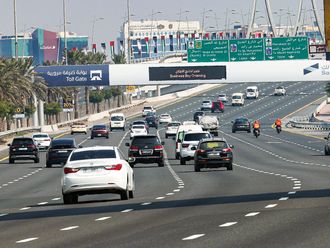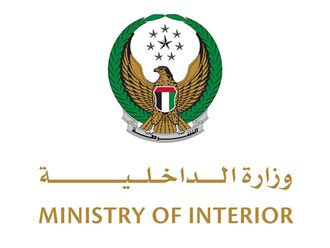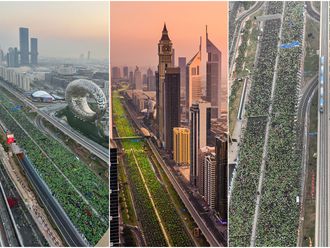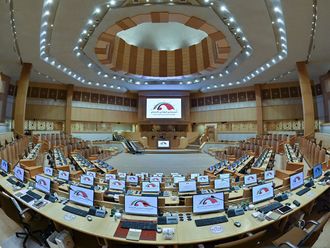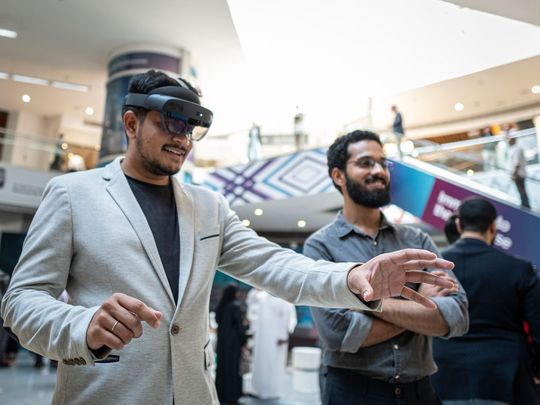
Dubai: The final day of the inaugural Dubai Metaverse Assembly on Thursday focused on innovation, data privacy, security and public trust as the foundation and core elements of building the metaverse.
Speakers and experts who gathered at Dubai Museum of the Future also talked about investments, regulations and policies that will enable a productive environment for metaverse to thrive.
At a panel discussion titled ‘The Role of Governments in Virtual Worlds’, Christian Kunz from Dubai International Financial Centre (DIFC) Authority, said: “From a regulator point of view, ours is a risk-based approach but we also ensure that the technology will not be misused. There must be consumer and company protection as well as financial accountability and fairness.”
As part of Web3.0 (the so-called next iteration of the internet), metaverse is an emerging virtual space where users — represented by their avatars — congregate to work, meet, game, or socialise in 3D virtual spaces.
Kunz noted there are many challenges in the fast-evolving metaverse but opportunities also abound, as the digital world is estimated to grow by as much as $3 trillion in 10 years. He noted understanding the risks — particularly in terms of data security and safety — and building the opportunities should be given equal treatment. Meaning, one should not take precedent over the other.
One of the challenges in the nascent virtual world Kunz noted is the implementation and nature of laws that differ from one country to the other. Metaverse poses a big problem on jurisdiction given that it is borderless.
To solve this, Kunz noted, a cultural shift is need, where individuals and not just companies take responsibility in the digital world. There should also be a lot of time and resources to be spent to educate people in the cultural shift and all players in the metaverse ecosystem should come together “to bring a piece of solution to the puzzle.”
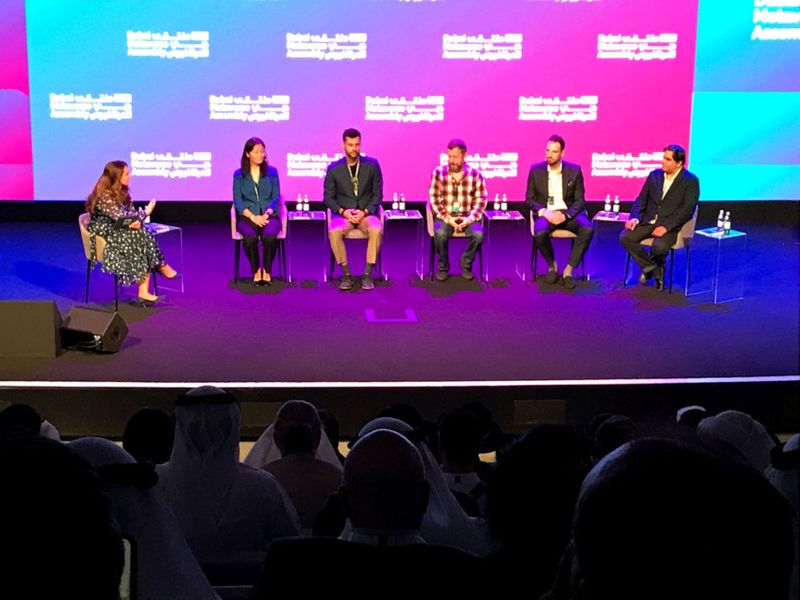
Customers as gatekeepers
Another speaker at the event, Keith Jordan from Mastercard, noted customers and corporations should act as the gatekeepers on metaverse.
“Customers should be at the centre of the decentralised operation,” he noted, adding: “The speed of the development of metaverse is astounding, affecting every vertical industry, and the dynamic power shift (should be placed) in the hands of consumers.”
Jordan, meanwhile, praised the UAE for talking proactive steps in promoting and advancing metaverse and its related technology in the government and society. Dubai Metaverse Strategy was unveiled in July this year, aiming to create 40,000 jobs and adding $4 billion to Dubai’s economy in the next five years. Prior to that, in May, the Virtual Assets Regulatory Authority (VARA) was established to regulator digital assets in Dubai.
Need to pivot
While the metaverse is still at its nascent stage, industry leaders are advised to become early adopters.
Jérémy Denisty, managing partner at Dubai-based management consultancy Scopernia, said: “To start planning for such a future, businesses will need to pivot from the two-dimensional transactional nature of Web2.0 and welcome three-dimensionally integrated hardware tools, cloud-based infrastructure, as well as a forward-facing connected workforce.”
He added organisations need to learn how to leverage the third iteration of the internet, “which is based on decentralised, permissionless, and transparent blockchain-based technologies alongside digital identity ownership, that form the foundation of the metaverse, NFTs, and cryptocurrencies.”
Diplomacy Lab NFT
Meanwhile, The Diplomacy Lab, an initiative launched by Fatima Bint Mohamed Bin Zayed Initiative in collaboration with Anwar Gargash Diplomatic Academy, has launched an NFT (non-fungible token) membership to individuals in becoming a core part of its community.
The Diplomacy Lab defines its core value with themes related to culture, space, innovation, tolerance, youth, women empowerment, technology, climate action and heritage. The purchase of the NFT will include certain benefits such as access to the its events, programmes and exclusive networking.
HoloLens 2 makes a debut
Microsoft has debuted its latest iteration augmented reality headset HoloLens 2 on the final day of Dubai Metaverse Assembly. Tariq Hijazi, director of public sector at Microsoft UAE, said: “The UAE has always been at the forefront of adopting, refining and increasingly exporting new, cutting-edge technologies. The metaverse is no different, and as always through our more than 30-year history, we stand ready to support the country in realising its vision. We have been working hard to enable the bridge between the physical and digital worlds — from investing in IoT and digital twin solutions at scale, to broad AI deployments, the future of meetings with Teams and our work with Mesh and HoloLens in mixed reality.”






